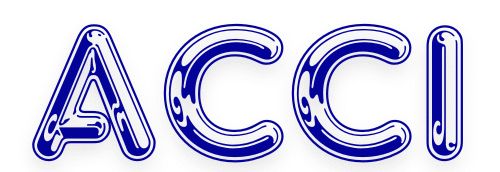Each year, over eight million Australians lodge tax returns, receiving an average refund of $2,576. However, many taxpayers inadvertently forfeit substantial refunds by overlooking legitimate deductions. Research indicates that taxpayers who engage professional advice receive average refunds of $3,550 – a difference of $974 that often stems from properly claiming overlooked expenses.
The Australian Chamber of Commerce and Industry (ACCI) recognises that small and medium enterprises, along with their employees, frequently miss opportunities to maximise their tax position through legitimate deductions. This analysis examines six commonly overlooked deductions that can substantially increase your annual refund.
Official Report Index
Work-Related Education and Professional Development
Professional development expenses represent one of the most underutilised deduction categories. The average Australian claims $1,936 annually for work-related education, yet many taxpayers fail to recognise eligible expenses.
Deductible education expenses include course fees, textbooks, software licences, and travel costs associated with professional development. For taxpayers in higher tax brackets, these deductions can generate refunds of $910 or more annually.
Home Office and Remote Work Expenses
The Australian Taxation Office provides two methods for claiming home office expenses: the standard rate of 70 cents per hour, or the actual cost method. Many taxpayers default to the standard rate without considering that actual costs may provide greater deductions.
The actual cost method allows claims for proportional utilities, equipment purchases, office furniture, and in some cases, rental expenses. For taxpayers working from home regularly, this method often yields substantially higher deductions than the standard rate.
Income Protection and Investment Expenses
Income protection insurance premiums paid outside superannuation funds are fully deductible. For high-income earners, this represents between 32% and 47% of premiums returned through tax refunds.
Investment-related expenses also provide substantial deduction opportunities. These include loan interest for investment purposes, property management fees, financial advisory fees, brokerage costs, and investment research subscriptions.
Professional Memberships and Subscriptions
Professional body memberships, industry publications, and work-related software subscriptions are fully deductible when required for employment. Many taxpayers overlook these expenses, particularly digital subscriptions and online professional development platforms.
ACCI Guidance
ACCI recommends that business owners and employees maintain comprehensive records of all work-related expenses throughout the financial year. Rather than scrambling for receipts at tax time, implement systematic record-keeping practices that capture all legitimate deductions.
Consider engaging qualified tax professionals who understand business and employment-related deductions. The additional cost often pays for itself through increased refunds and reduced compliance risks.
| Deduction Type | Average Annual Amount | Potential Refund* |
|---|---|---|
| Work-Related Education | $1,936 | $620 |
| Home Office Expenses | $1,250 | $400 |
| Income Protection Insurance | $890 | $285 |
| Investment Expenses | $1,100 | $352 |
| Professional Memberships | $650 | $208 |
| Total Potential | $5,826 | $1,865 |
*Based on 32% marginal tax rate
Frequently Asked Questions
Q: Can I claim work-related education expenses if my employer reimburses some costs? A: You can only claim the unreimbursed portion of work-related education expenses. Maintain records showing the total cost and employer reimbursement.
Q: What records do I need for home office deductions? A: For the actual cost method, maintain receipts for utilities, equipment purchases, and home office setup costs. Document the business use percentage of your home.
Q: Are investment property expenses immediately deductible? A: Most investment property expenses are immediately deductible, including interest, maintenance, and management fees. Capital improvements may need to be depreciated over time.
Q: Can I claim professional development costs for career changes? A: Expenses must relate to your current employment or business. Courses for entirely new careers are generally not deductible.
Q: How do I calculate the business use percentage for mixed-use items? A: Maintain a diary or log showing business versus personal use. For home office spaces, calculate the percentage based on floor area and time used for business purposes.
Related Topics
- Major Financial Changes for Australian Businesses: July 1, 2025
- Maximising Tax Deductions: Essential Guide for Australian Workers
- RBA Rate Cut Delivers Financial Relief: Business Community Prepares for Economic Shift
- Urgent Action Required: Family Tax Benefit Recipients Face June 30 Deadline
- Reserve Bank Rate Cut: Market Expectations vs Economic Reality

